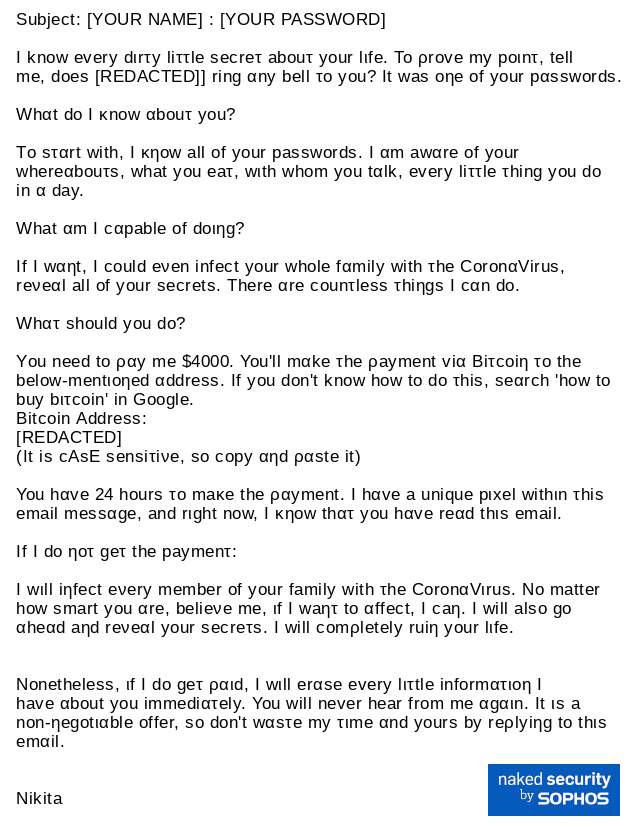The COVID-19 crisis has already shown that some cybercriminals have no conscience.
The so-called sextortion scam is well-known. People are blackmailed and scared by the sender saying that they have sexual images that will be sent to all your contacts. The message comes across as very intimidating because an existing password is added. Usually this is an old password that you actually used and that was found in a known old data breach. In principle, you wouldn't use this password anymore.
This extortion method has reached a new low. The victims are threatened with Coronavirus infection. They try to frighten the victims by claiming that they know where they live, what they eat, etc... The cybercriminals claim that they have added a unique pixel in the email that informs them of the time the email was read. They give you 24 hours to transfer a huge amount of money in Bitcoin.
To bypass the detection of the email providers, they use certain Greek characters. In this way, the e-mail slips through the spam filter's cracks.

Did you get such a message? Don't panic.
- If you do not share intimate images of yourself with others, the extortionist is bluffing. They can't have footage of you.
- Mark the message as SPAM or unwanted e-mail. Block the sender.
- Do not give into the request to pay a sum of money and file a complaint with the police.
- Don't reply to the e-mail.
- Delete the e-mail.
- In some sextortion scam e-mails, the sender will mention your (old) password. We recommend that you immediately change the passwords of all accounts to a strong password that is also unique for each account. Read all the tips on how to use passwords.
You received a message and responded to it. Now what?
- Mark the message as SPAM or unwanted e-mail. Block the sender.
- Did you make a payment? Contact your bank and file a complaint with the police.
- In some sextortion scam e-mails, the sender will mention your (old) password. We recommend that you immediately change the passwords of all accounts to a strong password that is also unique for each account. Read all the tips on how to use passwords.
